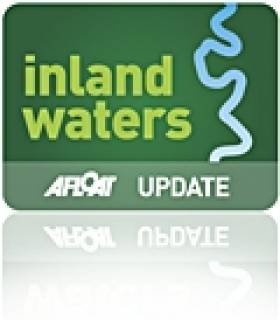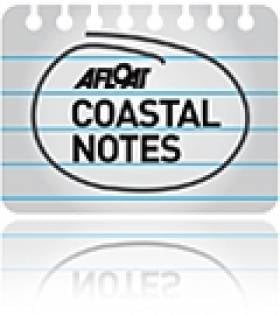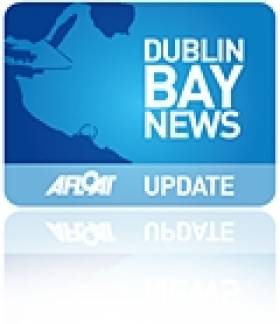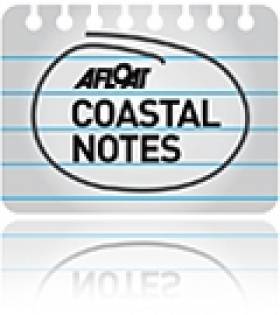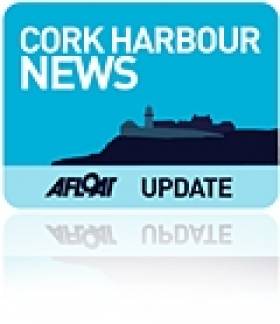Displaying items by tag: Department of the Environment
Dalkey Island Oil Licence Surrendered
#DalkeyOilProspect – Providence Resources, who have been planning to explore for oil and gas in Dublin Bay, has surrendered its foreshore licence to the Department of the Environment, reports The Irish Times.
The Dublin based exploration company had planned to drill off the coast of Dalkey, in the Kish Basin.
In a statement this afternoon, the company said it made the decision to surrender the licence when it became clear that elements of an EU directive on environmental impact assessment (EIA) "were not transposed correctly in 1999 by the Irish Government". For more on this story click HERE.
Bridge Report Could Herald New Corrib Crossing for Galway
#RIVER CORRIB - A consultant’s report on Wolfe Tone Bridge in Galway could clear the way for a new crossing of the River Corrib, according to The Connacht Sentinel.
Galway City Council has confirmed that the €400,000 report will look at the possibility of a new bridge for vehicular traffic downstream of the existing span.
“Given the age of the current structure, we have to look at plans for the construction of a new bridge and the retention of the existing crossing as part of a walkway over the Corrib," said the council's director of services Ciarán Hayes.
“There is no doubt that such a walkway, as part as an overall regeneration plan for the area, would be a most welcome addition to the amenity infrastructure of this historic part of the city."
The €400,000 allocation for the report commission will comes from the National Roads Authority and Department of the Environment budget for regional and local roads in 2012. The report is expected to be carried out later this year.
Campaign to Stop Planned Oil Drill off Dalkey Island
#DALKEY ISLAND PROSPECT - An online petition organised by Protect Our Coast in protest over plans by Providence Resources to start exploratory drilling for oil and gas off Dalkey Island, in south Co. Dublin, has reached over 2,000 signatures to date, including support from overseas.
Providence Resources are seeking permission from the Department of Environment for a foreshore licence to carry out site investigation and drill testing in waters depths of 20-30m in the Kish Bank Basin, at the Dalkey Island 'Prospect'.
They propose drilling one exploratory well some 6kms offshore, though the exact location chosen for the well site is subject to results of seismic surveys. This particularly area lies closer to the coastline, as it is on the more westerly fringes of the exploratory block (33-21) zone.
The campaigners object to the proximity of the well site off Dalkey Island which is designated a Special Protection Area (SPA). The island is home to a resident herd of goats, is rich in birdlife, seals and cetaceans, notably bottlenose dolphins in neighbouring Killiney Bay, which have drawn recent media attention and aided the objectives of the campaign, see www.protectourcoast.net
In addition they oppose the drilling location given its closeness to a large urban population and the risk of an oil-spill and consequent effects to humans and the environment throughout Dublin Bay.
If granted, exploratory work is due to start this year, with Providence claiming the entire process would take up to six months, between survey and drilling operations. During part of that timeframe, up to two seismic vessels will be employed, prior to deploying a 'jack-up' rig to the well site.
Should the oil be commercially viable, the benefits of becoming self-sufficient and security of supply would be of significant economic benefit to Ireland. To date 100% of the country's oil and 95% of its gas is currently imported, and yet most of Ireland's natural resources are unexplored, according to Providence Resources.
Exploration is an expensive exercise and has no guarantee of discovery while the timeframe from discovery to production can typically take five to seven years.
"Yet," say Providence Resources, "the implications of discovering and utilising such a natural resource, and potentially becoming self-sufficient in energy terms, would be of significant economic benefit for Ireland Inc. in terms of taxation, employment, security of supply and skills development."
To read more information about Dalkey Island Prospect from Providence Resources, with maps, montages (including views from White Rock Beach) newsletters and video presentation visit www.providenceresources.com/dalkeyisland.aspx
As previously reported on Afloat.ie, the application for the foreshore license is currently on view in Dalkey and Dun Laoghaire Garda stations. The application contains maps, plans, and drawings which can be inspected, noting the public consultation process ends on Thursday 2nd February 2012.
In addition for information from the Department of Environment's website, click HERE. Those wishing to make an objection or representation of the sought license should make submissions to the Foreshore Unit of the department on close of business (also) on Thursday 2nd February 2012.
.
- Dalkey Island Prospect
- Dublin Bay News
- Providence Resources
- Protect Our Coast
- Dublin Bay Oil drilling
- Killiney Bay
- Dalkey Island
- Dalkey Island Goats
- Dalkey Dolphins
- Department of the Environment
- Foreshore License
- White Rock Beach
- Killiney Beach
- Kish Bank Basin
- Special Protection Area
- SPA
- JackUp rig
- seismic survey
- Irish economy
- Online petition
- Well Site
- Exploratory Well Kish Bank Basin
- Cetaceans
- bottlenose dolphins
€220m for 9km Pipeline to Cut Dublin Bay Pollution
Dublin City Council is proposing a mammoth 9km sewage outfall pipe to help make Dublin Bay cleaner - at a cost of €220m.
Herald.ie reports that the 5m-wide pipe - longer than the Dublin Port Tunnel - would dump effluent from the Ringsend treatment plant far offshore, thereby avoiding pollution in the bay and sensitive areas such as Bull Island, which recently lost its EU Blue Flag status for Dollymount Strand.
Plans for the project, which DCC head of waste Pat Cronin described as the "greenest and most economic solution" will be open to public consultation in the near future, with a timetable for completion by 2015.
The pipeline and redeveloped treatment plant will be funded via the Department of the Environment's water services investment programme.
Donegal Wind Farm Faces Criticism
A Donegal conservation group has hit out at An Bord Pleanála for approving plans for a 13-turbine wind farm in a scenic Gaeltacht area.
The Irish Times reports that businessman PJ Molloy originally sought permission for 35 wind turbines with a 90m blade diameter to be erected near Glenties.
This number was reduced following consultation with the Donegal County Council and the Department of the Environment regarding the impact to protected species in the local habitat such as freshwater mussels, Atlantic salmon and otters.
However the Gweebarra Conservation Group has criticised the granting of planning permission, arguing that the Government is "giving tax incentives to private investors to destroy our hills and bogs".
The group also highlighted concern over health dangers potentially associated with the high-voltage power lines necessary to transmit electricity from the turbines.
The planning board voted five-to-two to grant permission for the turbines, taking into account both the National Renewable Energy Action Plan and the suitability of the site - which falls outside exclusion areas under Donegal County Council’s development plan.
Department Denies Haulbowline Report
The spokesman told RTE news there is no likelihood of fines being imposed.
He added that the notice, which was issued last week, is part of a long standing legal case being taken against Ireland relating to other waste legacy sites.
Haulbowline was mentioned because it had no waste license.




























